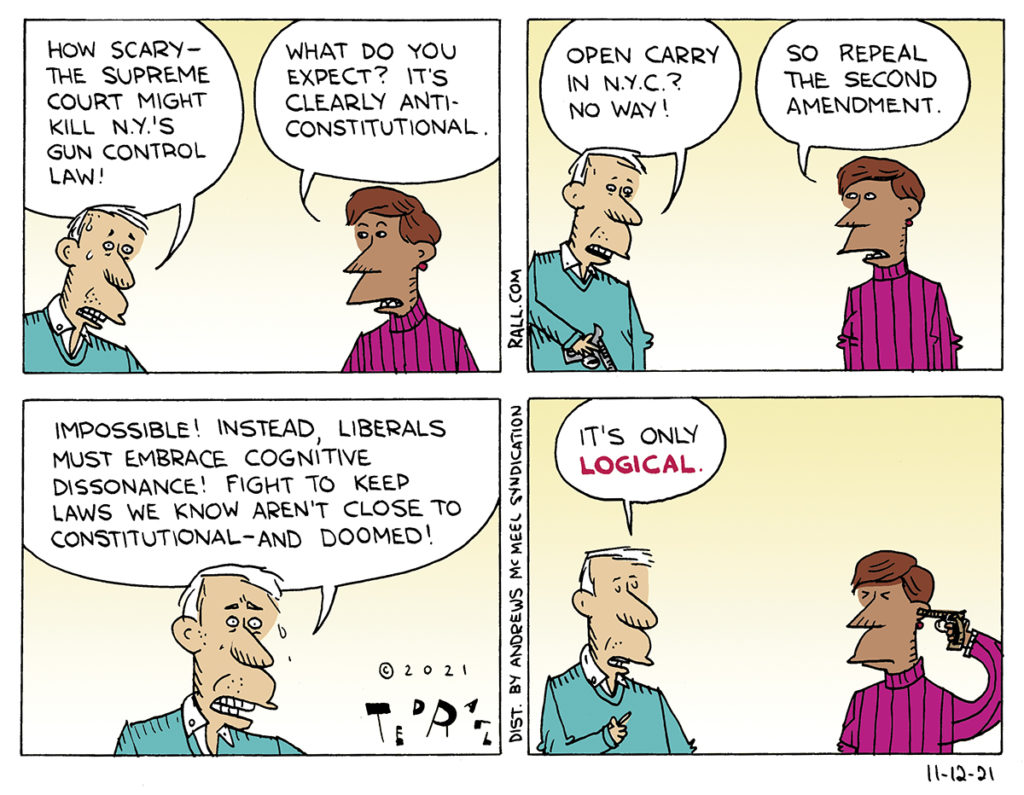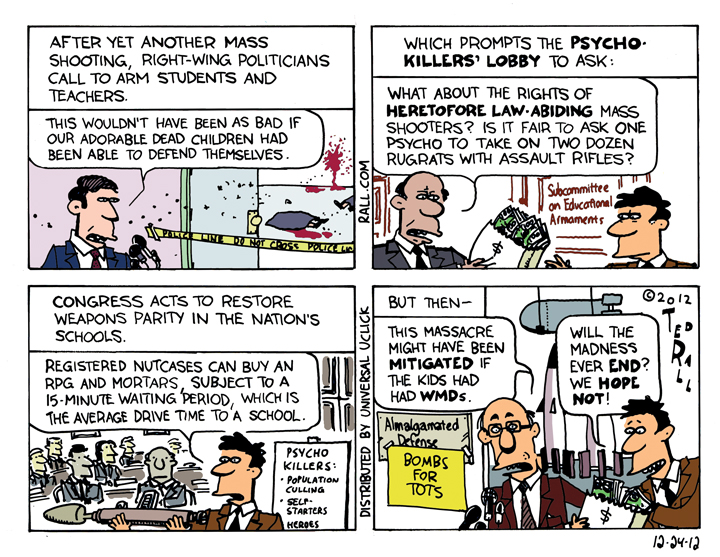
Is a system working as well as possible? Inertia lulls people into believing that legacy products are great—even that they’re perfect—without objectively considering whether it’s really true. The QWERTY computer keyboard works but the 1936 Dvorak version is superior. Skim milk makes you fatter. The U.S. may still be a shining city on a hill but our Constitution has become so out-of-date that new nations no longer refer to it as a template for their own legal charters.
Ask yourself: if our political system were created today, by a group of intelligent people, what would it look like? If the real-world system we see now falls short of that ideal, there’s room for improvement.
What if we were to scrap our centuries-old Constitution? What if we built a shiny new government from the ground up, without considering legacy or precedent?
This is a complicated question. Only one of out of four Americans would vote to repeal the Second Amendment, so the right to bear arms might make it into a new charter. Much of that support, however, derives from voters who own the hundreds of millions of guns already in circulation. An America without a legacy of individual firearms ownership would be much less likely to codify it as a fundamental right.
So what would an ideal representative democracy look like for the United States, 2023 edition?
Nothing like what we have now.
Every citizen of sufficient age to exercise sound judgement should be allowed to vote. Our society currently says 18. But there are strong arguments in favor of allowing children to vote as well as for raising the age of enfranchisement to 25. If mental acuity matters, what about the one out of ten Americans over age 65 who suffers from dementia, or those with very low IQ?
Among those permitted to cast ballots, each vote ought to count equally. The principle of one person, one vote is almost universally accepted.
Yet the current system falls dismally short of our professed ideal. Due to the electoral college, the vote of a resident of Wyoming in a presidential election counts 3.6 times more than that of someone who lives in California. People in the District of Columbia enjoy no vote at all; nor do the 4 million Americans who reside in overseas territories. Gerrymandering through redistricting has radically reduced the weight of a vote cast by a Black citizen compared to a white one. Forty-eight out of 50 states either ban convicted felons, people in prison and/or on parole from voting; the U.S. has some of the most vicious disenfranchisement laws in the world.
If a representative democracy is healthy and vibrant, voters ought to be able to choose from a broad selection of candidates who represent a wide range of ideological viewpoints that reflect the broad diversity of opinions in our vast country.
In this respect, the U.S. is not a democracy.
We only have two major parties. But not by choice. 62% of Americans say they want the option of a third party; dissatisfaction with the Democrats and the Republicans helps explain why the U.S. has one of the lowest voter-turnout numbers in the world. Smaller parties are barred from presidential debates, don’t receive coverage in the press, are stymied by draconian ballot-access laws drafted by Democrats and Republicans, and bludgeoned by nuisance lawsuits filed by the big two in order to drain their resources and block them the ballot.
In many elections, there aren’t even two parties. In 2016, 42% of races for seats in state legislatures were uncontested, meaning there was only one candidate on the ballot. There’s no word whether any of them was named “Saddam.” In 2022, a whopping 57% of state elections for judges were unopposed. I live in New York, where the Working Families Party provides an illusion of choice by appearing on the ballot next to the Democrats. But the WFP’s candidates are the same as the corporate Democrats.
Ranked-choice voting, promoted by progressives, sometimes leads to anti-democratic results. California’s small state Republican Party rarely has one of its candidates among the top two vote-getters who move past the first round to the general election.
Party primaries can be coronations, as when Barack Obama and Donald Trump essentially ran unopposed in 2012 and 2020, respectively.
Candidates are not legally bound to carry out their election promises if they win. Evolving circumstances or further reflection—or dishonesty—may prompt a politician to change course after victory. But there is accountability for perfidy, whether real or imagined, in a vibrant representative democracy. Rather than outsource politics to a political class every two or four years or whatever, citizens in a high-functioning representative democracy keep informed beyond the carnival of election season, express their opinions and hold their representatives’ feet to the fire with public protests and demonstrations, as we’re currently seeing in France after their imperious president ignored popular will by increasing the national retirement age without holding a parliamentary vote.
The U.S. does not have a high-functioning representative democracy. Voters are uninformed, don’t trust the media and can’t agree on the facts at the heart of stories and issues like whether climate change is real or Biden won the election.
Worst of all, we fail to hold our representatives accountable when they ignore us. Abortion is no longer legal in most states, 85% of American adults favor abortion rights, yet the streets remain calm and protester-free. Two out of three Democrats want big immediate action against climate change, yet they don’t have anything to say to President Biden—who probably blew up a major gas pipeline and created an ecological disaster, and authorized oil drilling in the ecologically fragile Alaskan wilderness.
If we were to create a new political system out of whole cloth, it wouldn’t look anything like this.
(Ted Rall (Twitter: @tedrall), the political cartoonist, columnist and graphic novelist, co-hosts the left-vs-right DMZ America podcast with fellow cartoonist Scott Stantis. You can support Ted’s hard-hitting political cartoons and columns and see his work first by sponsoring his work on Patreon.)






